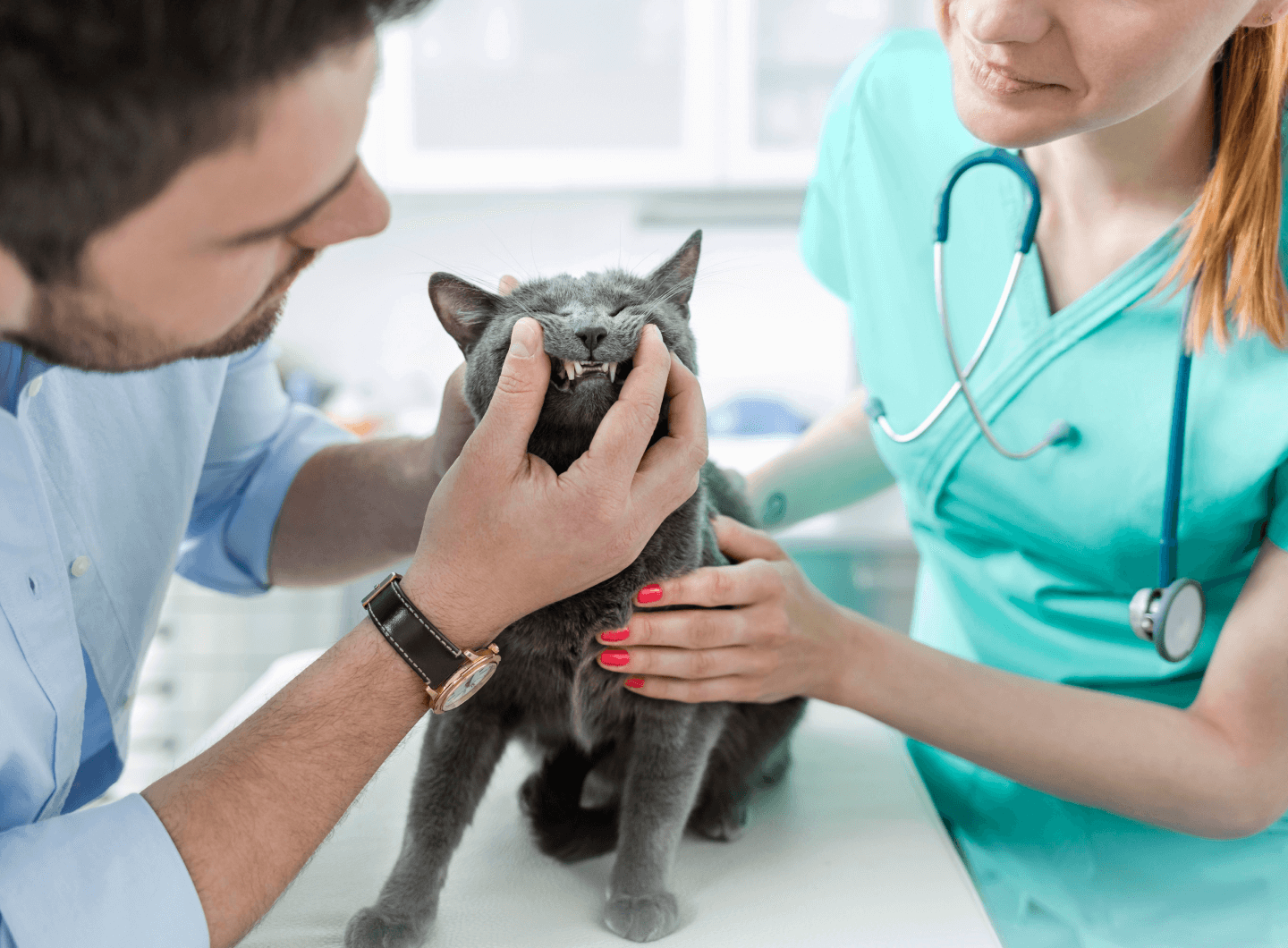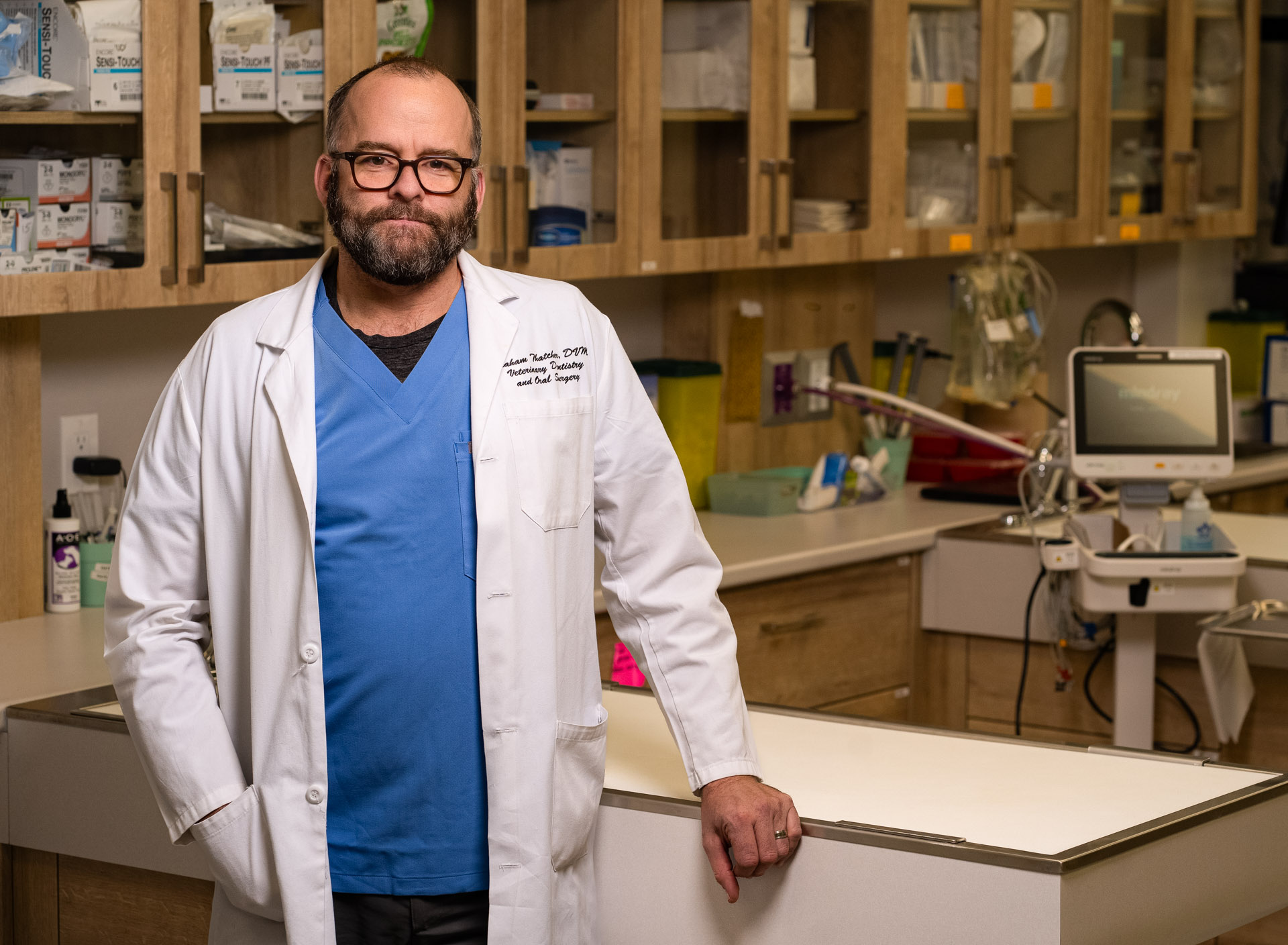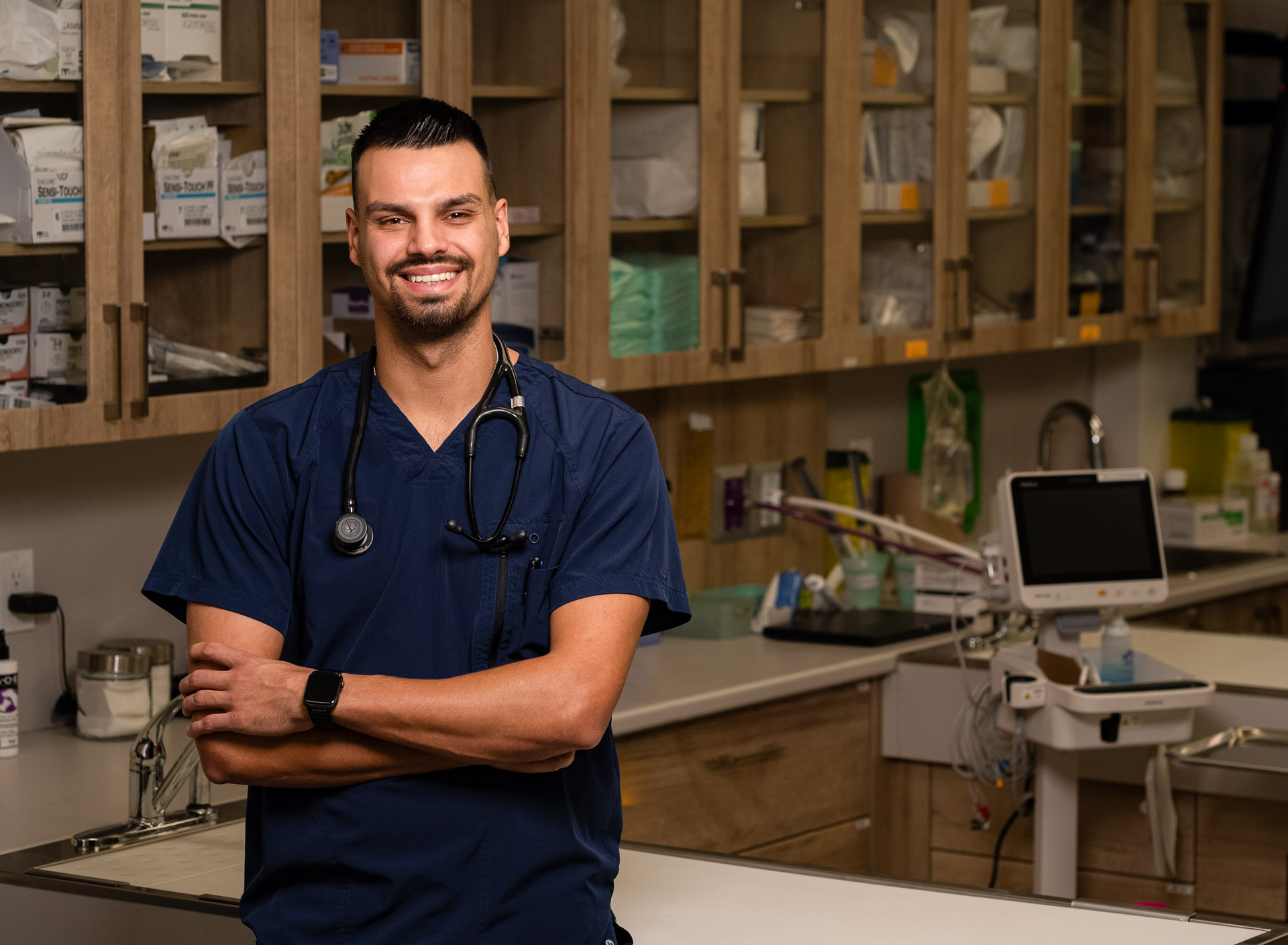Who is a Veterinary Dentist?
A veterinary dentist is a board-certified specialist in diagnosing and managing oral, maxillofacial, and dental diseases. A dentist undergoes extensive training to acquire the specialized skills to diagnose and treat dental oral and maxillofacial diseases and conditions. This training involves completing veterinary school to become a veterinarian (4 years), an internship program (minimum of 1 year), and an approved dentistry and oral surgery residency training program (3 years). After this training, the veterinarian must complete and pass multi-day written and practical examinations to become a board-certified dentist. Our dentist, Dr. Graham Thatcher, is board-certified with the American Veterinary Dental College (AVDC). In addition, Dr. Thatcher completed further training in oral and maxillofacial surgery at the University of Wisconsin.

Our Dentistry Specialist

Dr. Graham Thatcher
Veterinary Dentist
Learn More »

Dr. Matt Meihls
Learn More »
When Should Your Pet See Our Dentist?
Dr. Thatcher is willing to see your pet anytime they have a dental, oral, or maxillofacial concern. We accept referrals from primary care veterinarians and self-referrals directly from owners. Some of the more common changes that warrant concern are:
- Bad breath
- Discoloured teeth
- Loose, broken, or decayed teeth
- Teeth with obvious tartar accumulation
- Extra teeth or retained baby teeth
- Decreased appetite
- Abnormal drool (excessive or blood stained)
- Swellings or masses in or around the oral cavity
- Pain in or around the oral cavity
- Bleeding from the oral cavity
What Are Some of the Common Conditions Our Dentist Treats?
- Periodontal disease
- Masticatory myositis
- Temporomandibular joint disorders
- Congenital oral and maxillofacial conditions (e.g., cleft lip and cleft palate)
- Mandibular and maxillary fractures
- Oronasal fistulae
- Oral tumors
- Salivary mucocoeles
- Brachycephalic obstructive airway syndrome
What Are Some of the Tests Our Dentist Uses for the Diagnosis and Monitoring of Dental and Oral and Maxillofacial Conditions?
- High-detail dental radiographs (x-rays)
- CT scan
- Sentinel lymph node mapping
What Are Some of the Common Surgical Procedures Our Dentist Performs?
- COHAT (Comprehensive Oral Health Assessment and Treatment)
- Dental extractions
- Root canal therapy
- Vital pulp therapy
- Guided tissue regeneration
- Gingivectomy and gingivoplasty
- Crowns and restorations
- Orthodontic treatment
- Repair of mandibular and maxillofacial fractures
- Mandibulectomies and maxillectomies
- Sialolith removal and sialoadenectomy
- Brachycephalic obstructive airway syndrome correction
What Should You Expect When Booking an Appointment with Our Dentist at Capital City Specialty & Emergency Animal Hospital?
If your primary care veterinarian is referring your pet, we will contact you as soon as possible to schedule your appointment. If you are doing a self-referral for your pet, please either call (613 244 7387) or email (at dentistry@capcityvet.com) our team directly. One of our team members will schedule you into the next available appointment slot. Our regular schedule is Tuesday to Friday from 8 a.m. until 6 p.m.
On the day of your appointment, you and your pet will be checked in at reception and brought to the dentistry examination room. Dr. Thatcher will review your pet’s medical records and recent history and perform a thorough physical, dental, oral, and maxillofacial examination. If indicated, he may suggest additional tests to evaluate your pet’s condition further.
After this examination, Dr. Thatcher will thoroughly discuss the examination findings with you and will make a treatment plan that best suits your pet, their condition, and your involvement. The entire process will take approximately 30 minutes.
If medications are required, a treatment plan and medications will be sent home with you with detailed instructions.
If surgery is also required or recommended, you will review this thoroughly. Anesthesia may be provided and monitored by our board-certified anesthesiologist, Dr. Matt Milloway, and his team for each of our surgical cases for the best and safest care possible.
A thorough report will be sent to you and your primary care veterinarian, including Dr. Thatcher’s examination findings, diagnosis, treatments, follow-up recommendations, and a review of the conditions/diseases. This will ensure that we are all included as a team to provide continuity of care for your pet.
We strive to provide you and your pet with the highest level of care. We love what we do, we love our patients, and we treat them as if they were our own.


